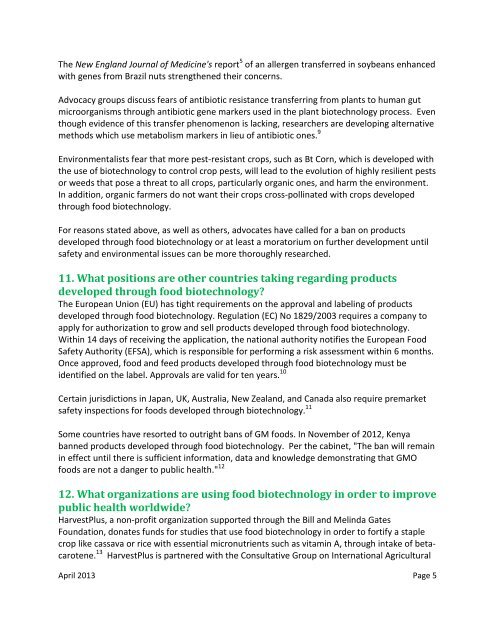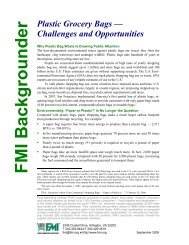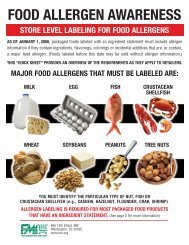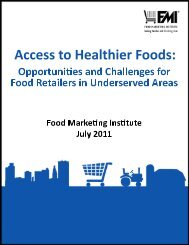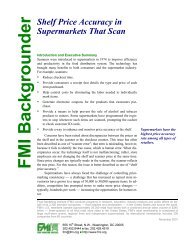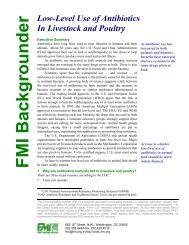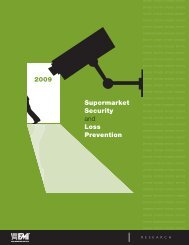Food Biotechnology - Food Marketing Institute
Food Biotechnology - Food Marketing Institute
Food Biotechnology - Food Marketing Institute
Create successful ePaper yourself
Turn your PDF publications into a flip-book with our unique Google optimized e-Paper software.
The New England Journal of Medicine's report 5 of an allergen transferred in soybeans enhancedwith genes from Brazil nuts strengthened their concerns.Advocacy groups discuss fears of antibiotic resistance transferring from plants to human gutmicroorganisms through antibiotic gene markers used in the plant biotechnology process. Eventhough evidence of this transfer phenomenon is lacking, researchers are developing alternativemethods which use metabolism markers in lieu of antibiotic ones. 9Environmentalists fear that more pest-resistant crops, such as Bt Corn, which is developed withthe use of biotechnology to control crop pests, will lead to the evolution of highly resilient pestsor weeds that pose a threat to all crops, particularly organic ones, and harm the environment.In addition, organic farmers do not want their crops cross-pollinated with crops developedthrough food biotechnology.For reasons stated above, as well as others, advocates have called for a ban on productsdeveloped through food biotechnology or at least a moratorium on further development untilsafety and environmental issues can be more thoroughly researched.11. What positions are other countries taking regarding productsdeveloped through food biotechnology?The European Union (EU) has tight requirements on the approval and labeling of productsdeveloped through food biotechnology. Regulation (EC) No 1829/2003 requires a company toapply for authorization to grow and sell products developed through food biotechnology.Within 14 days of receiving the application, the national authority notifies the European <strong>Food</strong>Safety Authority (EFSA), which is responsible for performing a risk assessment within 6 months.Once approved, food and feed products developed through food biotechnology must beidentified on the label. Approvals are valid for ten years. 10Certain jurisdictions in Japan, UK, Australia, New Zealand, and Canada also require premarketsafety inspections for foods developed through biotechnology. 11Some countries have resorted to outright bans of GM foods. In November of 2012, Kenyabanned products developed through food biotechnology. Per the cabinet, "The ban will remainin effect until there is sufficient information, data and knowledge demonstrating that GMOfoods are not a danger to public health." 1212. What organizations are using food biotechnology in order to improvepublic health worldwide?HarvestPlus, a non-profit organization supported through the Bill and Melinda GatesFoundation, donates funds for studies that use food biotechnology in order to fortify a staplecrop like cassava or rice with essential micronutrients such as vitamin A, through intake of betacarotene.13 HarvestPlus is partnered with the Consultative Group on International AgriculturalApril 2013 Page 5


